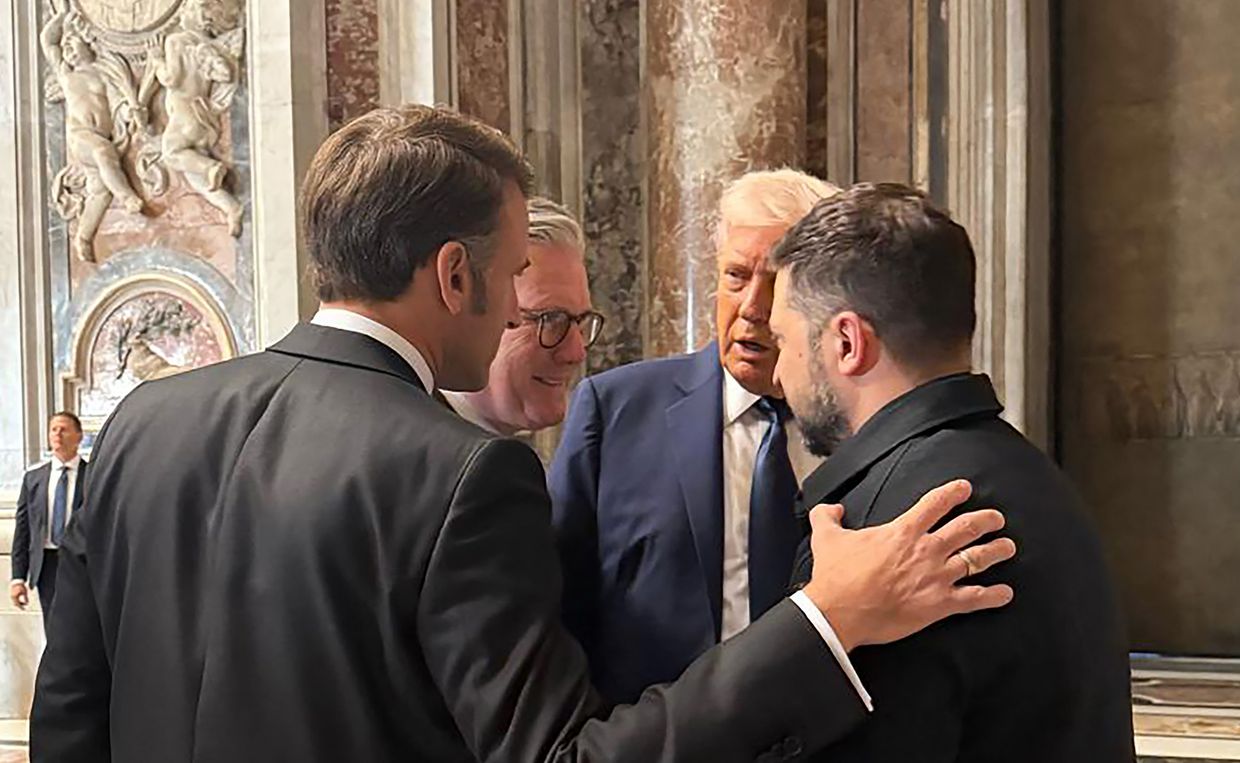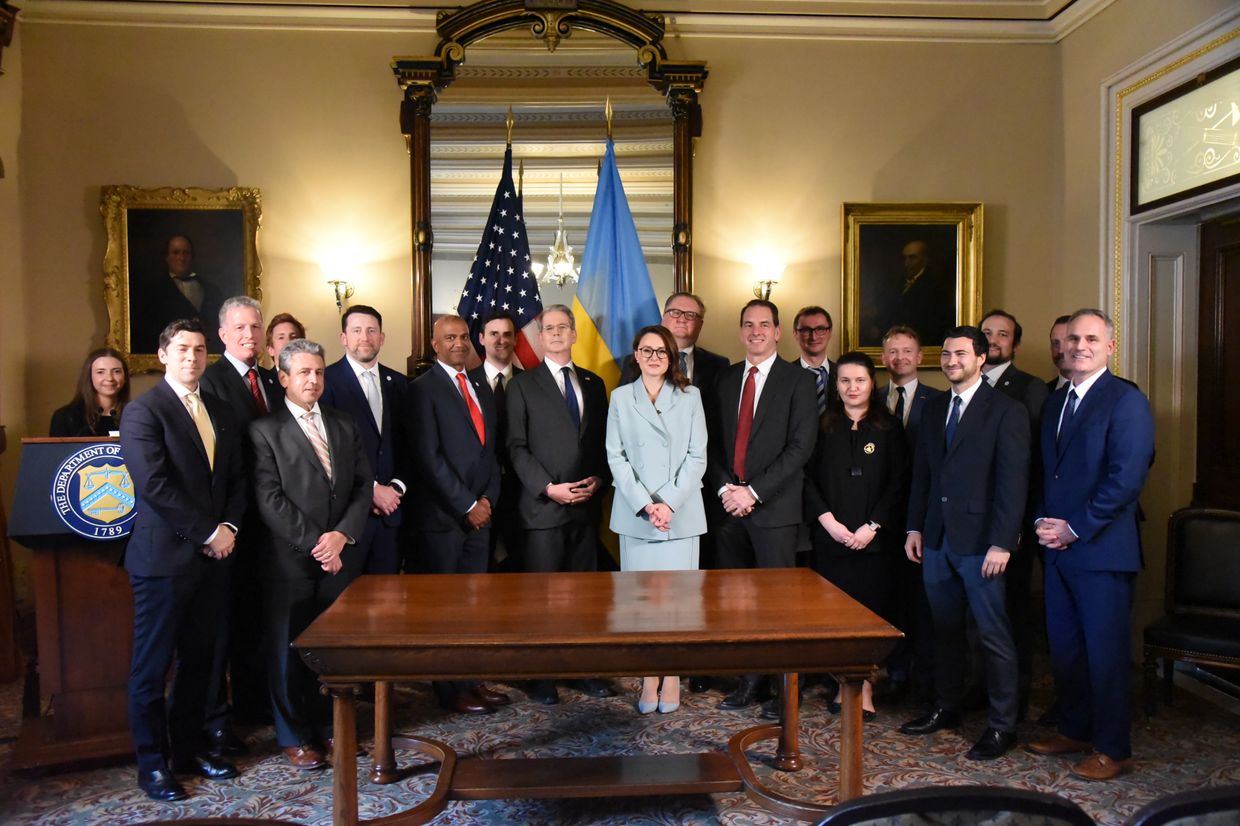Kremlin spokesperson Dmitry Peskov rejected the idea of a 30-day ceasefire between Russia and Ukraine, claiming in an interview with ABC News on May 10 that it would be "an advantage" for Ukraine.
The visit marks Merz’s first trip to Ukraine, and the first time all four leaders have travelled there together.
"Our involvement in the war was justifiable, and this belongs to our sovereign rights," North Korean dictator Kim Jong Un said. "I regard this as part of the sacred mission we must execute for our brothers and comrades-in-arms."
The number includes 1,310 casualties that Russian forces suffered over the past day.
"We have a plan B and a plan C. But our focus is plan A, the essence of which is to get everyone's support" for Ukraine's accession, EU foreign policy chief Kaja Kallas said.
"(T)he presence at the Victory Parade of a country that bombs cities, hospitals, and daycares, and which has caused the deaths and injuries of over a million people over three years, is a shame," Polish Prime Minister Donald Tusk said.
"According to the participants of the performances, their goal is to remind the civilized world of the barbaric actions of Moscow, which for many years and decades has systematically violated international law," a source in Ukraine’s military intelligence agency (HUR) told the Kyiv Independent.
"I have great hope that an agreement for a ceasefire in Ukraine will be reached this weekend," German Chancellor Friedrich Merz said on May 9, shortly before traveling to Kyiv alongside the leaders of France, Poland, and the U.K.
U.K. Prime Minister Keir Starmer, French President Emmanuel Macron, German Chancellor Friedrich Merz, and Polish Prime Minister Donald Tusk will arrive in Kyiv early on May 10.
The United States embassy in Kyiv on May 9 issued a warning that Russia could launch "a potentially significant" attack in the coming days, despite Putin's self-declared Victory Day "truce."
The sanctioned oil tankers have transported over $24 billion in cargo since 2024, according to Downing Street. The U.K. has now sanctioned more shadow fleet vessels than any other country.
The sanctions list includes 58 individuals and 74 companies, with 67 Russian enterprises related to military technology.
Trump reportedly shifts tone on Putin after UK, France apply diplomatic pressure

U.S. President Donald Trump has toughened his rhetoric toward Russian President Vladimir Putin following months of diplomatic efforts by British Prime Minister Keir Starmer and French President Emmanuel Macron, Politico reported on May 1, citing unnamed European government sources.
The coordinated effort, led by senior British and French officials, sought to persuade Trump to ease pressure on President Volodymyr Zelensky and focus more criticism on Putin, arguing that Moscow's actions were undermining Trump's credibility as a negotiator.
British National Security Advisor Jonathan Powell and Defense Secretary John Healey reportedly played key roles, working closely with U.S. Ambassador to the U.K. Mark Burnett.
British Foreign Secretary David Lammy said he had spoken 13 times this year with U.S. Secretary of State Marco Rubio, while Starmer and Trump held "almost" as many direct conversations.
A former British ambassador, speaking anonymously, said London and Paris continually emphasized to Trump that Putin was "disrespecting him by consistently breaking the ceasefire he claimed to be implementing."
Putin agreed to a 30-day pause of energy infrastructure strikes during a call with Trump on March 18, allegedly ordering a halt of attacks on Ukraine's energy system.
Ukrainian Foreign Ministry spokesperson Heorhii Tykhyi said on April 16 that Moscow violated the partial ceasefire more than 30 times.
Zelensky reinforced that message during a brief conversation with the U.S. president at Pope Francis' funeral on April 26, Axios reported. During the meeting, Trump reportedly told the Ukrainian president he might need to reconsider his approach to Putin.
Trump, who has positioned himself as a broker of a swift peace deal between Ukraine and Russia, has so far avoided condemning Russian strikes or introducing new punitive measures.
On April 24, after Russia launched 215 missiles and drones across Ukraine — killing at least 12 civilians and injuring 87 in Kyiv — Trump labeled the attack "not necessary" and "very bad timing," directly appealing to Putin with: "Vladimir, Stop!"
However, he did not outline any consequences.
U.S. officials have intensified efforts to secure a ceasefire, warning they may withdraw from mediation if no progress is made soon.
Ukraine accepted a 30-day ceasefire proposed by Washington in March, but Moscow continues to reject the plan, pressing forward with offensive operations.
European officials are now watching closely to see whether Trump's harder line on Putin will hold or fade as his impatience to finalize a deal resurfaces.

Most Popular

After 3 years of full-scale war in Ukraine, Europe announces plan to ban all Russian gas imports

Ukraine, Europe's ceasefire proposal includes US security guarantees, no recognition of Crimea, Reuters reports

Journalist Roshchyna's body missing organs after Russian captivity, investigation says

After Russia's deadly attack on Kyiv, Vance reposts denunciation of Zelensky

Ukrainian sea drone downs Russian fighter jet in 'world-first' strike, intelligence says
Editors' Picks

How medics of Ukraine’s 3rd Assault Brigade deal with horrors of drone warfare

As Russia trains abducted children for war, Ukraine fights uphill battle to bring them home

'I just hate the Russians' — Kyiv district recovers from drone strike as ceasefire remains elusive



